- Home
- Pearl S. Buck
Hidden Flower
Hidden Flower Read online
The Hidden Flower
A Novel
Pearl S. Buck
Contents
Part I
Part II
Part III
Part IV
A Biography of Pearl S. Buck
PART I
THE GARDEN WAS QUIET. Beyond its walls no echo of footsteps could be heard above the soft incessant splash of the waterfall. The silence was planned, as everything in the garden was planned, though all seemed nature itself. Thus, on the street side of the garden the water had been lifted by the most modern plumbing, concealed behind rocks, to make a brook running apparently from a height. A truncated hillock, half hidden by bamboos, built against the high stone wall, was so designed that it took on the dignity of a spur of the mountains behind the city. Over its rocky side the water splashed in a storied waterfall into a deep clear pool. Three large pines, curved with age, leaned over the pool to make reflection. Though so few, they conveyed the atmosphere of a forest in the distance.
The house, north of the garden, was entirely Japanese. It was large, but the roofs were low. Bamboos softened their sloping corners and like drawn curtains revealed the paper-latticed walls. The house was of wood, unpainted and aging a silvery gray. The season was spring and against the softness of the gray wood masses of azaleas bloomed. The sun shining down upon them lit them into brilliance of scarlet and orange and honey yellow.
The hour was noon. In his study Dr. Sotan Sakai lifted his head from the manuscript upon which he worked and gazed through the open doors. The garden was irresistibly beautiful. He put down his fountain pen and rose from the floor mat, noticing, with some inward pride, that his long legs were not stiff. It had taken him several years to return to the ways of his people, after his youth in the United States. At first it had been unbearable to fold his legs before the low table and write for hours at a time. But he had made up his mind that he would do it, even as he had decided, when he chose to leave that country to return to the land of his birth. He had made the choice because he was a proud man and he could not brook the notion of a concentration camp in Arizona. They had given him the choice, either the camp or repatriation to Japan. He chose Japan.
The iron pride had made him return completely to his ancestry. He had bought the ancient family seat of Baron Kazuko, outside the city of Kyoto. The Kazuko family, impoverished by the war, had gone into final retreat when the sons were killed in China. The Baron himself had entered a Buddhist monastery in the mountaintop near Unzen, on the island of Kyushu, and his wife returned to her own family. The family of Kazuko was no more. In its place now lived Sotan Sakai and his wife and their daughter, Josui. He had once a son. Kensan, older by five years than Josui when they left America. Kensan had not been willing to return to Japan. He had gone to the concentration camp, and there had volunteered for service in the war. He had been killed in Italy.
His son’s death had confirmed Dr. Sakai in his determination to be Japanese. Kyoto had been spared by the war. The ancient capital stood as it had been for a thousand years and more, except for a few modern buildings. These could not prevail, however, against such old and honored buildings as the Higashi-Hongao-ji Temple, or the palaces whose thick thatched roofs had been the pride of generations of imperial thatchers. The gardens of the palaces had given to Dr. Sakai the present source of discovery of his ancestral country, and from them he had brought back ideas in rocks, water, dwarf trees, and moss. The garden of the Shokintei House, in the Katsura Imperial Detached Palace, had seemed especially beautiful to him, the calmly flowing water, the footbridge, the rocks, the spare use of trees and shrubbery combining intimacy and distance.
When the end of the war came, he remained aloof from the Occupation troops and their commanders. Since he had established himself as the leading doctor of western medicine in the city, his position was secure. People could not do without him. He treated all who came to him with equal care, or very nearly, but prudent in the realities as he found them, he made it his duty to revive the ancient courtesy toward the aristocrats, the great families who were now in retirement. He did not feel their trust incongruous.
After his work each day in a large modern hospital, he returned to his home, changed his garments, and wrote on his book, entitled Diseases of Deficiency. He had accumulated much knowledge upon the subject during the years of his return. Now he wiped his fountain pen carefully before he went into the garden. The pen was his only concession, at home, to American ways. The traditional brush was too slow. But perhaps this was not a concession since most Japanese used pen and pencil instead of the brush. Indeed, these were made in Japan and the pen he considered superior to the American ones. The lead in the pencils, however, was too hard.
At the wide door, which was only the latticed wall slid back like a screen, he enjoyed again his garden. That is, he almost enjoyed it. Knowing its every detail, he could not refrain from searching for the fallen leaf, the possible overnight anthill, which could mar its perfection. He did not wish to disturb himself to find the gardener and to demand of him why he had not removed such accidents. He closed his eyes and meditated for a moment, murmuring the fragment of a sutra. When he opened his eyes again he saw his garden with fresh perception, glowing in the sunlight, exactly as he wished to see it.
Meditation was not easy for him. His youth had been spent in the busy streets of Los Angeles, peddling the vegetables and flowers that he helped his parents to raise on five acres of land outside the city. He had worked his way through college and had won scholarships in medical school. In America there had been no time for meditation. He had been compelled to learn it when he came to Japan, as one learns to play a musical instrument, the five-holed flute, for example, which he enjoyed in the evenings.
He had only one anxiety left, now that the war was over. This was his daughter Josui. At fifteen she had been a child, following her parents when they chose Japan. She had not been docile in other ways and only bewilderment and fear had made her willing to leave America. She had been terrified by her American schoolmates, always so pleasant, so friendly, until suddenly one day they had changed into enemies. Their charming faces became ugly and scowls took the place of smiles. This she could not understand, and she had complained to her best friend, Folly Andrews, the daughter of the grocer who bought vegetables from her grandfather. “But, Polly, I am the same person I have always been.”
“No, you are not,” Polly had retorted. “You are a Japanese and I hate you.”
Josui had said no more. She did not go again to school and a few days later when her parents took ship she followed them in heartbroken silence. The country she had taken for granted as her own, where she had been born, whose language alone she spoke, had rejected her and despised her. Yet she was not ready to accept Japan, because her grandmother had told her too much of the lot of women there. She remained in a state of doubt, safe while she lived in her father’s house but uncertain of her future.
Dr. Sakai himself divined the state of his daughter’s mind and this was his anxiety. Now that Josui was twenty, what would they do with her? Marriage could not be far off, especially for a girl so pretty, but what marriage? He had received offers for her and he had been too prudent to present them to her, expecting her instant rejection. He had never even discussed her marriage with her, and he had forbidden Iris wife, Hariko, to do so. The matter was delicate and he wished to undertake it alone. Were the wrong word spoken Josui might refuse marriage at all.
He lingered at the door, and then changing his straw slippers to wooden clogs, he walked down the path to the pool and stood watching the splash of the water. The air of spring was rich with renewed life. He was a man of imagination strictly controlled, and he did not allow himself to feel the season. He was simply the more a
nxious about Josui. What would the spring do to her this year? Last year she had broken into restlessness which he had understood very well, for he had studied psychology as a necessity for medicine. Mind and body were well or ill together. He had given her sedatives of a harmless sort and had set her to typing the first hundred pages of his manuscript each day as soon as she came home from school. The hot weather began early and her restlessness sank into listlessness. He became convinced, however, that beneath her gentle manners she concealed a passionate nature. Marriage was therefore imperative and soon.
He glanced at his gold wrist watch, hidden under the falling sleeve of his robe. In the hospital he wore western dress but he had learned now to prefer the robe of dark silk, belted at the waist, his feet in heelless slippers in the house, or outdoors, in wooden clogs. He felt free, thus clothed. It was nearly one o’clock. Josui was late. Where had she loitered? The meal must be ready although the servants, directed by their mistress, had not summoned him. They were waiting for Josui.
He frowned, forgetting the garden. If she did not come within fifteen minutes, he would wait no longer. He loved his plain and silent wife, but he enjoyed his meals more if Josui was with them. Nevertheless, he would not indulge his child. He would go in without her, in fifteen minutes, and he would order the food put away if when he was finished she had not come. The order of his house must not be disturbed. At two o’clock he would return to the hospital to see his patients.
He was spared the decision because Josui came in exactly ten minutes. He heard the brass bell fastened on the other side of the gate tremble into sound, then the gate opened and closed. Her western shoes clicked briskly upon the stone path and the maidservant exclaimed in welcome.
He waited, still gazing into the pool, his back to the house. It was the duty of the daughter to search for her father. In a moment he heard her soft voice.
“Father, I am home.”
He allowed himself to turn, without smiling. “You are very late.”
“Father, it is not my fault,” she replied. In the garden, the sunlight streaming down upon her, he was frightened by her beauty. She had walked along the street from the college, looking like this! Her hair was shining black, her great eyes were bright and dark, her cheeks were pink with heat, her lips red. She had changed her school clothes, even in the few minutes she had been home, and she wore a soft green kimono. At least she had not worn this garment upon the street. Her school clothes were ugly.
“How is it not your fault?” he demanded in a stern voice.
“American soldiers were walking down the street,” she explained. “There were many of them. Everybody had to wait.”
“Where did you wait?” he demanded.
“I stepped into the doorway of the hospital so that I would not be in the way.”
He decided to say no more. “Let us go in and eat. I have little time left. I do not like to be late at the hospital—it makes a bad example for the younger doctors.”
She knew her father’s strict sense of duty and made quick apology. “I am very sorry, Father.” She spoke in Japanese, because she knew he wished it, but she would never speak it as willingly as she did English.
“You have explained that it is not your fault,” he replied. He walked in front of her, his hands behind his back, looking to one side and another as he went. “Observe the azalea,” he said. “It has never been finer.”
“It is beautiful,” she agreed.
He weighed the sound of her voice, as later he would watch the look upon her face, the pace of her every movement, to gauge, if he could, the temperature of her heart. He would have no peace until she was married, and he could not endure another spring in this anxiety. A daughter was a burden, precious beyond any other, and so the heavier.
Josui was aware of her father’s secret observation during the noon meal. She was always aware of him and she knew very well his anxiety concerning her, and acknowledged to herself the reason for it. She hid herself from him. He did not know what she was thinking or what indeed she was. Though her conduct was perfect in his presence, he suspected, without accusation, that this perfection was not at all what she was. In this he was right. She lived a double life in this house, not from discontent, but from overflow of energy. This energy, she often thought, must be because she had lived in California until she was fifteen years old, drinking the milk of cows fed on clover and grain and eating fruits and vegetables and meats. Her body was bursting with feeling and strength. Her mind was intense and curious. Thus she was entirely different from the Japanese girls, pale and quiet, who watched her with admiration and dislike. She was called The American, and she did not deny the charge.
“You walk like American women,” Haru Mishima said.
There were some American women to be seen in the city, although not so many as in Tokyo and Osaka. Josui observed them and felt that she did walk like them. She did not turn her toes in and her legs were straight. But she loved little pigeon-toed Haru, although she did not know why, except that she loved people easily, it might be, from the very excess of her energy. Though her food was no longer milk and bread and butter, eggs and meat as it had been in America, she ate heartily of rice and fish and vegetables. Her mother laughed at her today.
“Who would think you are the daughter of an educated man?” she now said. “You eat like the child of a peasant.”
They sat on their legs around the low table upon which the food was placed. The maidservant had put before each of them a lacquered bowl of clear soup, in which floated a scalloped slice of radish and a bit of green sea lettuce. Three bowls of fish and vegetables were set in the center of the table and into fresh wooden bowls, lacquered black and gold, Yumi the maid dipped white dry rice from a wooden container. She bowed only slightly as she set each bowl in place. The deep bow was no longer proper since the Occupation and democracy. A slight bow, however, Dr. Sakai required. The maid was pleased that he did so, for it meant that the house had a master, even though it was not usual for the master to eat with the mistress and the daughter. Americans did so, she had heard from other housemaids at the market. Her master was therefore something less than real Japanese, but something more than American. She classified him thus and felt content.
Dr. Sakai, secretly observing his daughter, thought her color too high. Her cheeks, always pink, were red.
“Did you stand in the sun while the Americans passed?” he asked.
“Yes, I did,” she admitted. “I left my parasol at home this morning. I did not think the sun would be so bright. There were clouds over the mountains when we breakfasted.”
“Such clouds always mean clearness by noon,” he declared. “It is from the sea that we must expect rain.”
Mrs. Sakai looked at Josui. “You are certainly quite red. After the meal you had better put some white powder on your face. It makes a girl look coarse to have such cheeks.”
“I wish I were not an only child,” Josui said, pouting and smiling. “You have nothing to do, you two parents, but to examine me.”
Both parents looked away from her.
“The tokonoma must be freshly arranged tomorrow,” Mrs. Sakai said.
The tokonoma alcove faced the garden. From the end of the room where they sat at the table budding willow and plum blossoms leaned above the small incense urn. Yesterday Josui had placed a bronze frog under the drooping plum. Three objects could be placed in the tokonoma but never more. Her father had employed one of the best teachers in the city to instruct her in such matters. The teacher was a widow, slight and small, who lived with her son and his family in a small gray house by the Katsura River.
“Tomorrow I will cut peach blossoms,” Josui said.
“With peach blossoms the bowl of rose quartz would be suitable,” her father replied.
The atmosphere, which had been growing difficult, was thus restored to calm. Josui said no more, she made herself assiduous in offering the dishes to her parents and averted their displeasure by silence. Had her brot
her lived, she might have shared with him the burden of their intense love. With him, too, she could have shared her memories of America. He might even have invited her to visit him, for by now he would have been married to his fiancée, and there might have been children. The fiancée, after proper mourning, had married another man and they no longer heard from her. Nevertheless, Josui could remember her quite well. She was a small, lively girl, who wore her black hair heavily curled about a round pale face. She wore bright American clothes and little high-heeled shoes, and once she had been chosen May Queen at the Los Angeles High School. When Josui thought of her it was as May Queen, wearing a spangled silver dress and a crown of polished tin upon her freshly curled hair. Her father was the minister at the Christian church. The Sakai family had always been Buddhist and this had troubled the Christian family. Was Buddhism not heathen? It had been a matter for dissension between her brother and her parents. Dr. Sakai did not wish to see his son married in a church. None of it now mattered, since the marriage had never come to pass. When the wedding day came, her brother was dead, the Christian family was in Arizona behind barbed wire, and the Sakai family was here in Kyoto. Nobody in this house had mentioned the wedding day but she knew that her parents remembered, and she herself had gone alone into the garden and behind a tall rock she had wept for her brother.
“Takashi Matsui invited me to take tea with him,” her father remarked at this moment. “Since the invitation came five days ago this afternoon is the time.” He had finished eating and was sipping the pale green tea he enjoyed.
Takashi Matsui was his richest patient, who had a rebellious gall bladder which he would not have cut out. He was a man still not old, and he had three sons, one a prisoner in Russia, one who had been killed in the attack upon Nanking, and a third who was now a young man. This third son made the father cheerful, for he believed that never again would Japan go to war, and so he could keep at least the one son. Was it not written in the new Constitution that Japan was never to rearm? This had been demanded by the American conquerors. So upon the third son Takashi Matsui lavished love and money. It had seemed useless to him to educate his other two sons, since they would inevitably be compelled to be soldiers who would probably die in the vast wars then being prepared by the men who were in power, but Kobori was now at the university in Tokyo.

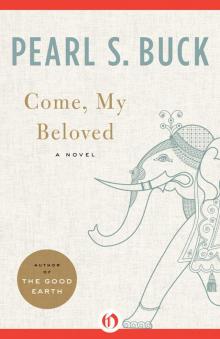 Come, My Beloved
Come, My Beloved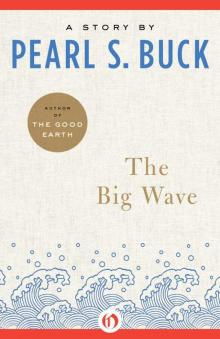 The Big Wave
The Big Wave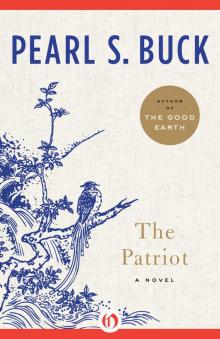 The Patriot
The Patriot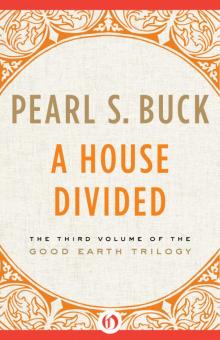 House Divided
House Divided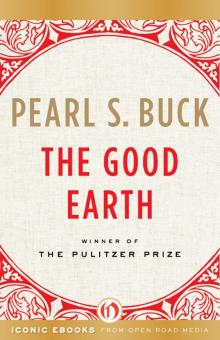 The Good Earth
The Good Earth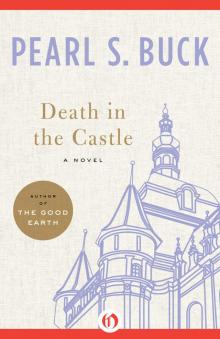 Death in the Castle
Death in the Castle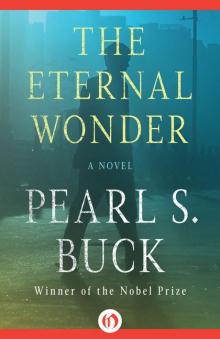 The Eternal Wonder
The Eternal Wonder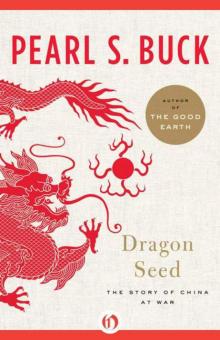 Dragon Seed: The Story of China at War
Dragon Seed: The Story of China at War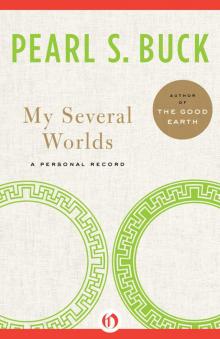 My Several Worlds: A Personal Record
My Several Worlds: A Personal Record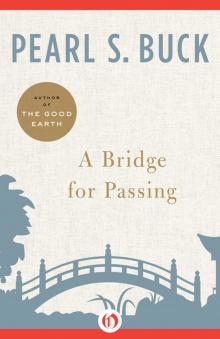 A Bridge for Passing: A Meditation on Love, Loss, and Faith
A Bridge for Passing: A Meditation on Love, Loss, and Faith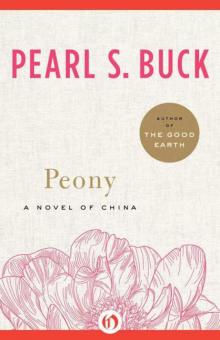 Peony
Peony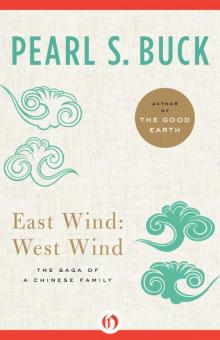 East Wind: West Wind: The Saga of a Chinese Family
East Wind: West Wind: The Saga of a Chinese Family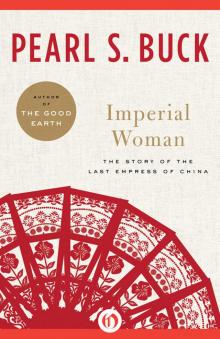 Imperial Woman
Imperial Woman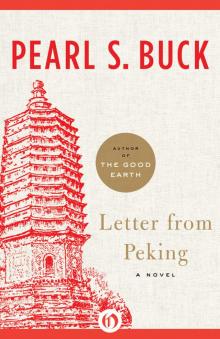 Letters From Peking
Letters From Peking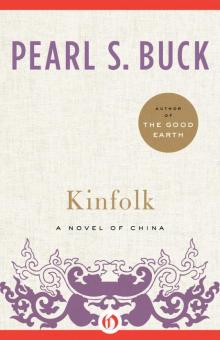 Kinfolk
Kinfolk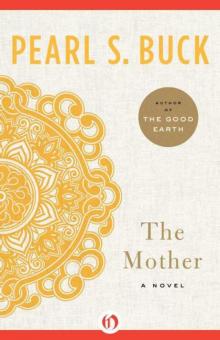 The Mother
The Mother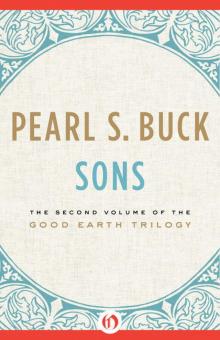 Sons
Sons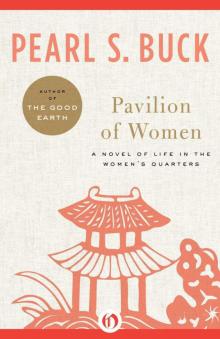 Pavilion of Women
Pavilion of Women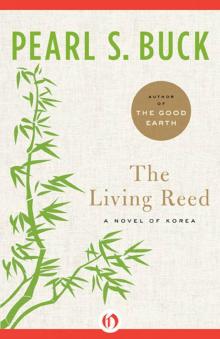 The Living Reed: A Novel of Korea
The Living Reed: A Novel of Korea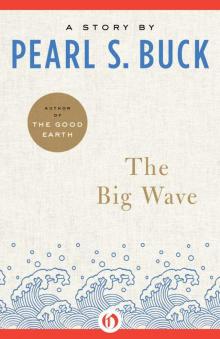 The Big Wave: A Novel
The Big Wave: A Novel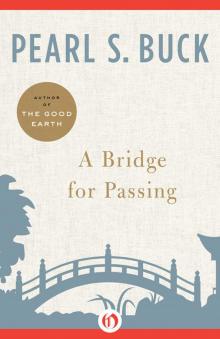 Bridge for Passing
Bridge for Passing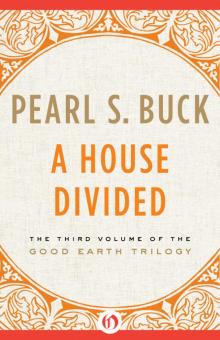 A House Divided
A House Divided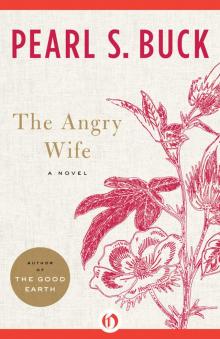 Angry Wife
Angry Wife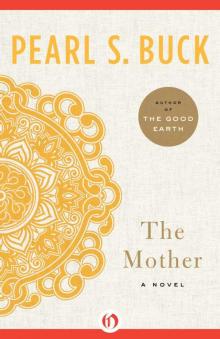 The Mother: A Novel
The Mother: A Novel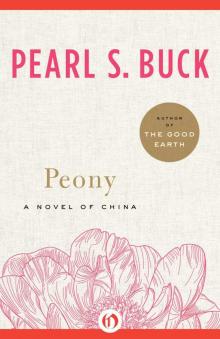 Peony: A Novel of China
Peony: A Novel of China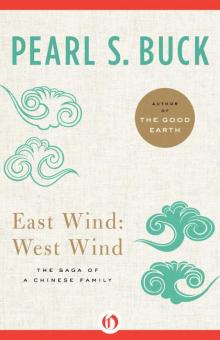 East Wind: West Wind
East Wind: West Wind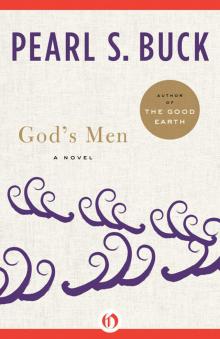 Gods Men
Gods Men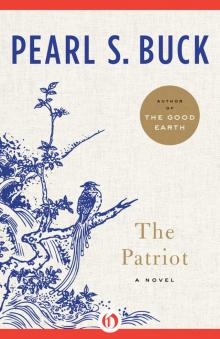 Patriot
Patriot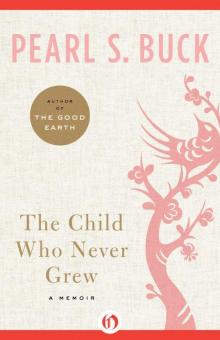 The Child Who Never Grew (nonfiction)
The Child Who Never Grew (nonfiction)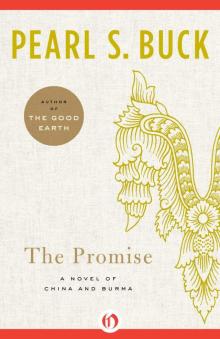 The Promise: A Novel of China and Burma (Oriental Novels of Pearl S. Buck)
The Promise: A Novel of China and Burma (Oriental Novels of Pearl S. Buck)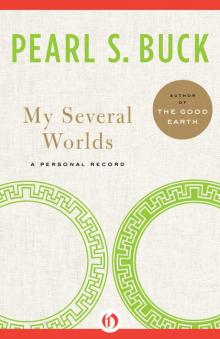 My Several Worlds
My Several Worlds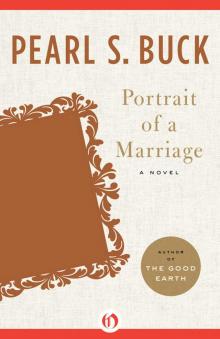 Portrait of a Marriage
Portrait of a Marriage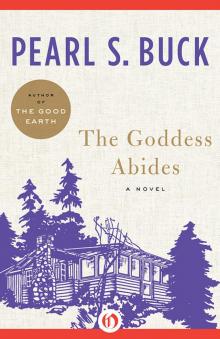 The Goddess Abides: A Novel
The Goddess Abides: A Novel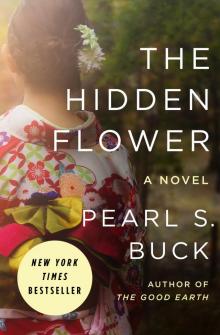 Hidden Flower
Hidden Flower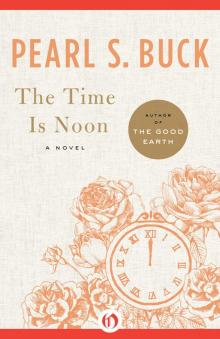 Time Is Noon
Time Is Noon